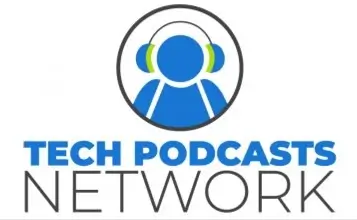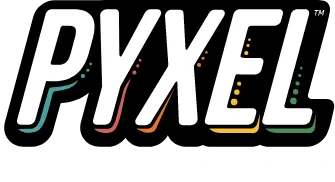In a world where access to quality education is often hindered by infrastructural limitations, the emergence of portable digital classrooms presents a transformative opportunity. Beekee, a Geneva-based education technology company, highlights the innovative solution they have developed: the Beekee Box. This device allows for the establishment of digital classrooms in locations devoid of reliable internet and power, thus bridging the educational divide that exists in many regions, particularly in the global south.
The Concept of the Beekee Box
The Beekee Box operates similarly to an iPod from 15 years ago, relying on a connection to a PC with internet access to update content and synchronize learner data. When disconnected, the Beekee Box creates its own private Wi-Fi network, enabling up to 40 learners to access educational materials stored within its two terabytes of storage. This model effectively transforms the learning experience, allowing students to engage with a learning management system (LMS) like Moodle, which is typically used in universities. The Beekee Box provides a platform where learners can access lessons, videos, and PDFs without needing a constant internet connection.
Addressing Global Educational Challenges
The significance of the Beekee Box lies in its ability to address the challenges faced by billions in the global south, where access to reliable internet and electricity is a luxury. Many communities struggle with inconsistent power supply, and internet access can be prohibitively expensive or simply unavailable. By providing a self-sufficient digital classroom, the Beekee Box empowers organizations, such as NGOs, to deliver training and educational resources directly to communities that need them most.
For instance, the International Committee of the Red Cross utilized the Beekee Box to train personnel in Myanmar. By simply pushing a button, they could create a network for learners to connect with their smartphones, facilitating immediate access to essential training materials. This approach eliminates the logistical hurdles associated with traditional training methods, which often require significant time and resources to coordinate.
Technical Feasibility and Performance
The technology underpinning the Beekee Box is both simple and effective. It utilizes a Raspberry Pi as its core computing component, which is capable of processing information in real-time and serving as a server for the stored educational content. During testing, the device successfully streamed video content to 37 devices simultaneously, demonstrating its capacity to handle multiple users without significant lag. This performance reassures educators and organizations of the reliability and effectiveness of the Beekee Box as a tool for facilitating learning.
With a starting price of $700, the Beekee Box presents a cost-effective solution for schools, NGOs, and other organizations looking to enhance their educational offerings. The ability to incorporate this technology into existing educational frameworks allows for greater flexibility in delivering content to students who might otherwise be excluded from formal education. The Beekee Box democratizes access to quality learning materials, making it feasible for various institutions to implement portable digital classrooms tailored to their specific needs.
Conclusion: Cost-Effectiveness and Accessibility Education
The advent of portable digital classrooms, exemplified by the Beekee Box, represents a significant step forward in addressing the educational disparities faced by underserved populations around the world. By providing a means to deliver high-quality educational content without the constraints of internet access, this innovative technology has the potential to revolutionize how education is delivered in remote and resource-limited settings. As we continue to explore and invest in such solutions, the dream of equitable access to education for all becomes increasingly attainable, paving the way for a brighter future.
Interview by Don Baine, The Gadget Professor.
Get $5 to protect your credit card information online with Privacy.
Amazon Prime gives you more than just free shipping. Get free music, TV shows, movies, videogames and more.
The most flexible tools for podcasting. Get a 30 day free trial of storage and statistics.
Podcast: Play in new window | Download
Subscribe: Apple Podcasts | RSS | More

 The
The  It seems like every time we turn around, someone is talking about education in STEAM – meaning science, technology, engineering, arts, and mathematics (or manufacturing). And, while it is not the right direction for all people, for those who are interested, it can be difficult to find a great way to begin. Much like Goldilocks, some kits are too complicated, and some kits are too simple, but
It seems like every time we turn around, someone is talking about education in STEAM – meaning science, technology, engineering, arts, and mathematics (or manufacturing). And, while it is not the right direction for all people, for those who are interested, it can be difficult to find a great way to begin. Much like Goldilocks, some kits are too complicated, and some kits are too simple, but  For generations, people across the globe have looked into the night sky and dreamed that some part of them would one day be able to go there. Over the past few years, the ability to purchase a ticket to physically travel to space has become a reality, though the costs are still incredibly high. However, for some, the ability to have a piece of their legacy in space is still a realistic possibility, thanks to the educational program at
For generations, people across the globe have looked into the night sky and dreamed that some part of them would one day be able to go there. Over the past few years, the ability to purchase a ticket to physically travel to space has become a reality, though the costs are still incredibly high. However, for some, the ability to have a piece of their legacy in space is still a realistic possibility, thanks to the educational program at  In a world where technology is constantly pulling us indoors,
In a world where technology is constantly pulling us indoors,  Kids love video games, there’s no doubt about that. However, a number of studies have shown that constant screen time can lead to developmental issues. It can cause issues with blurred reality, social interactions, and more. As additional information has become available, some people have worked hard to develop products that help engage kids with traditional-style toys and games without the need for screens. One such product is
Kids love video games, there’s no doubt about that. However, a number of studies have shown that constant screen time can lead to developmental issues. It can cause issues with blurred reality, social interactions, and more. As additional information has become available, some people have worked hard to develop products that help engage kids with traditional-style toys and games without the need for screens. One such product is  One of the accidental and unplanned themes of 2020 was definitely remote learning. Whether it be schools trying to virtualize their lessons or corporate conferences trying to maintain their engagement, the struggle has been intense. Tools like Microsoft Teams have worked, but they’re far from perfect because education is not what they were designed for. Fortunately, both schools and corporations now have
One of the accidental and unplanned themes of 2020 was definitely remote learning. Whether it be schools trying to virtualize their lessons or corporate conferences trying to maintain their engagement, the struggle has been intense. Tools like Microsoft Teams have worked, but they’re far from perfect because education is not what they were designed for. Fortunately, both schools and corporations now have  Vedica Jha, from Case Western University, is the founder of
Vedica Jha, from Case Western University, is the founder of  The idea of
The idea of  Hailing from Barbados, Michael Husbands, CEO of
Hailing from Barbados, Michael Husbands, CEO of